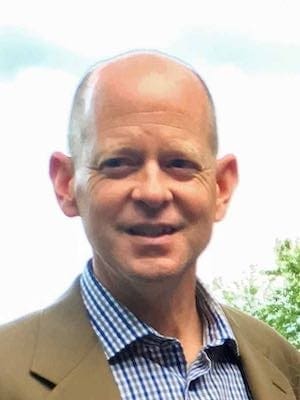As a parent, I stop sometimes in the morning with my first grade daughter and watch as students raise the flag at school. This Wednesday will likely find a different group of students gathered at the flagpole for the 14th annual “See You at the Pole” (SYATP) prayer gathering.
Each year on the third Wednesday of September, students are encouraged by their youth ministers and others to gather at their school flagpole for a prayer rally. The theme for this year’s SYATP rallies is “Consumed,” and comes from the story of Elijah and his encounter with the prophets of Baal (1 Kings 18).
The history of this event began in the spring of 1990 during a weekend retreat with a youth group in Burleson, Texas. According to the official SYATP Web site: “On Saturday night God penetrated their hearts like never before. The students were broken before God and burdened for their friends. Compelled to pray, they drove to three different schools that night. Not knowing exactly what to do, they went to the school flagpoles and prayed for their friends, schools and leaders. Those students had no idea how God would use their obedience.”
What began with a small group of Texas teenagers has grown into something much larger and much more organized. The Web site reports that in September 1990, 45,000 students met to pray at their schools. In September 1991, 1 million students were counted, and this year’s estimates are for 3 million students in the United States plus students in 20 other countries.
The great value of the SYATP events is the peer support many Christian children and youth find with fellow students. Many of us in church leadership talk to students about the virtues of taking a stand for what they believe and of being willing to be different as a witness to their faith. Standing side by side with others in prayer can help break down an “I’m all alone” feeling.
The flagpole represents nothing more than a public area to gather legally according to the SYATP Web site. Yet at least one youth minister in our area uses the presence of the flagpole to emphasize the Baptist tradition of religious liberty. He teaches the youth that freedom to practice our faith is an appropriate responsibility of the government. And he also takes the opportunity to discuss why teacher-led or state-supported prayer is inherently risky and unconstitutional.
No doubt every youth minister and local SYATP rally are different. Herein lie both the strength of the SYATP event itself, and its weakness.
As a youth minister myself a few years ago, the teenagers at our church were offended by the atmosphere surrounding SYATP. They felt as though the Christians who participated questioned the faith of other Christian teenagers who did not come and pray. There seemed to surface a definite “we now know who is in and who is out” mentality. This kind of response is, hopefully, not widespread, but also quite possible.
The interpretation of this year’s theme does not help reduce the possibility that teenagers will pass judgment on the good and the evil among them. In some ways, it may exacerbate the problem.
“Consumed” is the catchword taken from 1 Kings 18:36-39, and in the biblical story, it is Elijah’s offering that is consumed by God’s fire after Elijah’s prayer. The author of the Web site interprets the event this way (with the bold-face emphasis quoted from the Web site): “Then this one person (Elijah) boldly steps forward to pray a simple prayer, pleading that God would make himself known to these people. And the fire of God falls, and it CONSUMED everything–the sacrifice, the wood, and even the stones, the dirt and the water in the trench. Wow! The people were all so stunned, they could only fall on their faces and cry, “The Lord–He is God! The Lord–He is God!”
This text draws us into the reality that God can impact someone’s life through the prayer of one person. How appropriate for a student involved prayer rally! In the wider biblical context, however, the story of Elijah and the 450 prophets of Baal is fraught with conflict and violence. After the offering was consumed, Elijah ordered the seizure of the prophets after which Elijah killed them all.
Absolutely no one would suggest the intent of SYATP is violent in any way. But the choice of this Elijah story highlights the depth of spiritual conflict that many conservative Christians find at school.
The interpretation of the theme continues: “You must realize that when fire falls, it consumes everything that is unholy and ungodly.” And then adds: “It all boils down to this. How desperately do you want the fire of God to fall and consume your campus?” The direct relationship between the “unholy and ungodly” and “your campus” is intentional. Let’s pray that the consummation by fire is not.
Jeffrey D. Vickery is co-pastor of Cullowhee Baptist Church in Cullowhee, N.C.
Jeffrey D. Vickery is co-pastor of Cullowhee Baptist Church in Cullowhee, North Carolina, and a part-time instructor in the Philosophy and Religion Department at Western Carolina University in Cullowhee.

